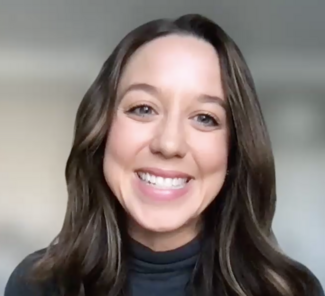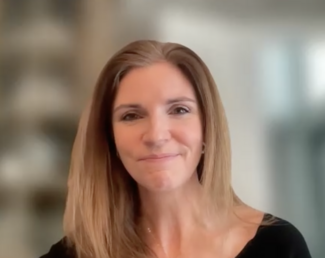Community Education Program Improves Patient Education and Cancer Screening Rates
Fabienne Gaillard Ulysse, DNP, AOCNP, ANP-BC, FAAN, Maimonides Medical Center, discusses the development of a community-based education program designed to improve patient education and accessibility to care and to cancer screenings. The community education program has resulted in over 8,000 residents of Brooklyn, Queens, and Long Island, being screened for prostate or breast cancer.
Transcript:
My name is Fabienne Gaillard Ulysse. I am the Assistant Vice President of Nursing Education at my Maimonides Medical Center. I would like to share with you project that I did in collaboration with Compassionate Health Ministries, a not-for-profit organization based in Brooklyn.
The goal of the project was to assess the impact of cancer education, community education on screening rates for African American populations. We partnered with local leaders in the community in specific zip codes. We looked at the zip codes that had the highest risk for certain type of cancers, and also we partnered with the New York City Department of Health to determine the health status of these zip codes.
We reviewed the health status of the specific zip code and see what cancer risk was really prevalent there, and we reached out to the local leaders of those communities, such as the pastors. It could be just a regular community leader in the area. We reached out to them so we could organize certain programs at the churches. We met with the pastors, so they would gather their congregation on a Saturday, on a Sunday, and we would have those health nuggets. We'll speak to them about the risk for cancer, breast cancer, or prostate cancer, depending on which group we're going to speak to. Then we will talk about the screening rate for that area, and we would go over providing them information on how they can be screened for that specific cancer.
We also did what we used the Cancer Risk 360. We spoke about this assessment being available via the American Cancer Society on their website, so they could go there and complete the assessment, and this would determine their risk, and it gives you a summary at the end that they can use to guide their screening activities. The reason that we did this, especially in some of the zip codes that we used, such as 11226, depending on the area, we found that many of these patients were not going for screening.
They were afraid of receiving a diagnosis. They were afraid of being labeled. There was also a knowledge gap. They didn't know what it was, what was the screening, what is a mammogram? What do I need to do to check my PSA level? What are the screenings that we use for these types of cancer? They were not aware.
This started in 2021 to 2024, and it's still currently ongoing. We found that when we first started, people were so reluctant to come to the educational activities. For example, in 2021, we only had maybe 200 people participating in the screening. Even though we touch almost 1000 people with the health nuggets and with the radio talk shows that we have, we probably touch almost 4,000 people by that year, but only 200 went for screening. Then the next year as they begin to trust us, and we talked a little bit more with many more people, then we found the number was increasing.
What we determined was that the education played a pivotal role in increasing the screening rates. Many of the patient's worries or concerns were answered. They had access to a healthcare professional, a nurse practitioner or physician, or a nurse who is an expert in the field, and they were able to answer their questions, provide guidance, give them specific instructions on where they can be screened, connect them with a primary care provider or even a cancer center where they could go and have these screening tests done.
If we continue this, eventually the entire communities, imagine if I were to do it in Brooklyn and then in Queens and in Long Island and others are doing it across the country, people will be fully educated. They would know what the risks are, why is it important for them to be screened or for us to be screened, and what are the benefits of screening? We would have so many people being screened. We would diagnose them early and treat them early, and the survival rates would be much more at a level that we would want it to be. It would increase significantly.
I highly recommend that practitioners around the country engage in this type of activity with your spare time, when you have a little time, you can partner with the community leaders in your areas and provide this education with specific aim. It may not be breast or prostate, it could be lung cancer, it could be bladder cancer, whatever it may be in your area based on that zip code need, I feel that the education will significantly have an impact. Thank you.
Source:
Ulysse FG. The Impact of targeted community cancer education on cancer screening rate. Presented at Oncology Nursing Society Congress; April 9-13, 2025. Denver, CO.














